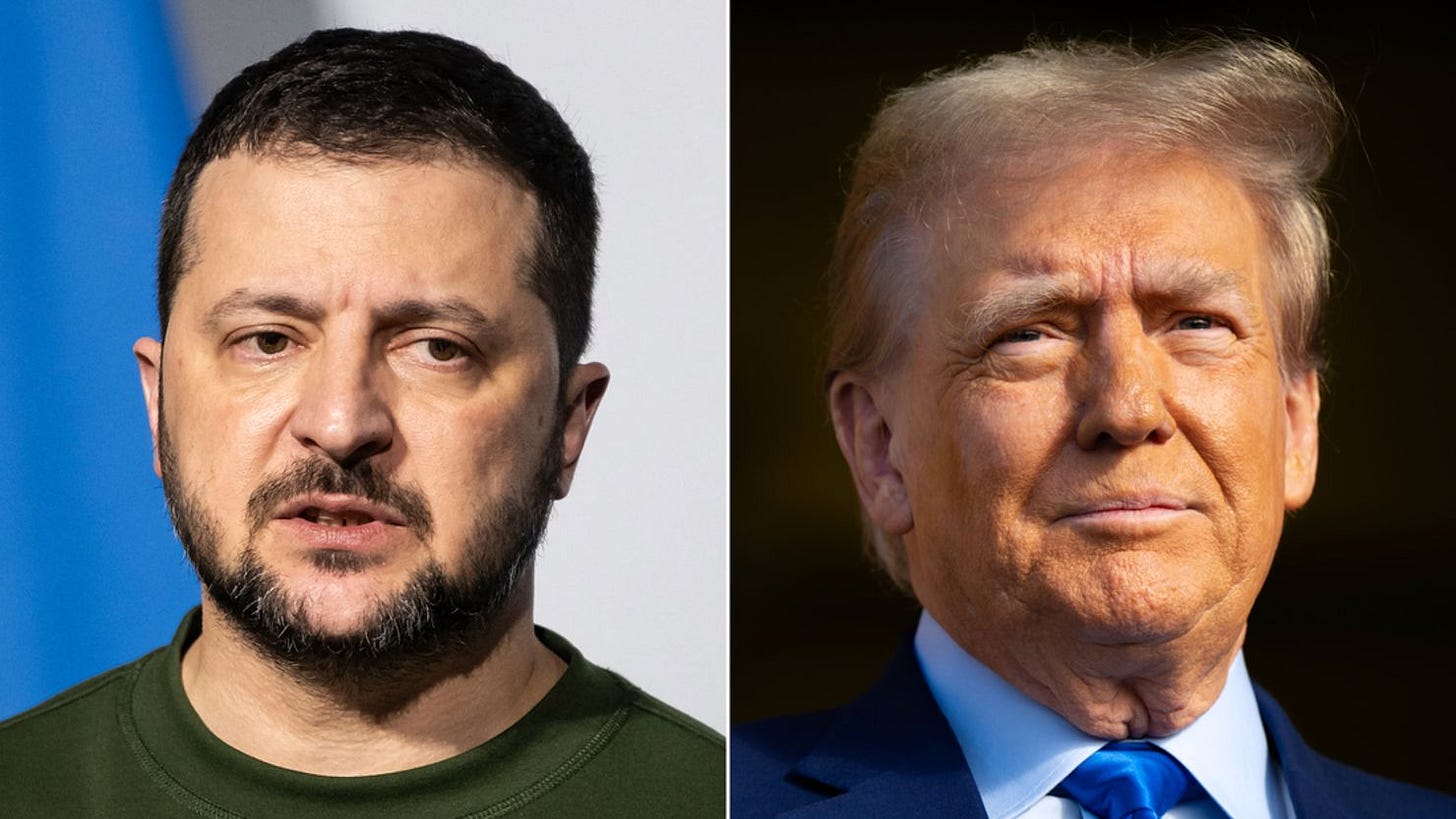Trump’s Shift in Ukraine Policy
Implications for Zelensky and the Future of the Conflict
In a significant departure from current U.S. policy, Donald Trump’s victory signals a new approach to the conflict in Ukraine. According to Bryan Lanza, a senior adviser to Trump’s 2024 campaign, the incoming administration’s primary objective will be to achieve peace, potentially scaling back U.S. support for Ukraine’s efforts to reclaim territories occupied by Russia. Trump has argued that continued military aid to Ukraine places an unnecessary burden on American resources, which could lead to a substantial policy shift that impacts both Ukraine's strategy and international relations.
Redefining America’s Role in Ukraine
Under the current administration, the U.S. has been one of Ukraine’s principal allies, providing both financial and military assistance to aid in the country’s defense against Russian incursions. For President Volodymyr Zelensky, this support has been crucial in bolstering Ukraine’s resilience. However, Trump's proposed pivot from military aid toward peace negotiations marks a sharp change in direction. Lanza’s comments suggest that rather than focusing on territory restoration, Trump’s administration will prioritize ending the conflict, even if that means pressuring Ukraine into compromises on territorial integrity.
Potential Challenges for Zelensky’s Government
Zelensky’s administration, which has made significant strides in reclaiming and defending Ukrainian territory, could face new diplomatic pressures. Should Trump seek to withdraw or limit U.S. aid, Ukraine may be forced to reconsider its military strategy or explore diplomatic resolutions. Such changes could shift the balance in negotiations with Russia, with Zelensky potentially pressured to accept terms that fall short of his original objectives. For a nation still reeling from conflict and seeking to regain its land and sovereignty, the new U.S. stance may feel like a step back from previous commitments.
Implications for NATO and Global Stability
The Trump administration’s anticipated policy shift also raises questions for NATO and other allies, who have worked closely with the U.S. in supporting Ukraine. A reduced American role may place additional pressures on European nations to increase their own military and financial assistance. NATO’s cohesion and its ability to respond swiftly to security challenges in Eastern Europe could be tested as the U.S. steps back from its current leadership role in the Ukraine crisis.
The Road Ahead: Peace at a Cost?
Trump’s perspective on the Ukraine-Russia conflict, emphasizing “peace over prolonged engagement,” is likely to stir debate within Washington and beyond. Advocates for this approach argue that redirecting resources to domestic issues aligns better with U.S. interests, while critics warn that such a shift could embolden Russia and destabilize the region further. This complex balance between national interests and global responsibilities will be a defining element of the next administration’s foreign policy.
The Global Reaction
International stakeholders are closely watching these developments, particularly NATO allies who have been heavily involved in supporting Ukraine. The response from these allies, as well as from Ukraine and Russia, will shape the future of the conflict and broader Eastern European security. Whether Trump’s focus on peace translates into stability or further turmoil remains uncertain, but one thing is clear: this shift will be felt worldwide.
As Trump’s administration prepares to take office, the world will be watching closely to see how this new chapter in U.S. foreign policy unfolds—and what it means for the future of Ukraine.


